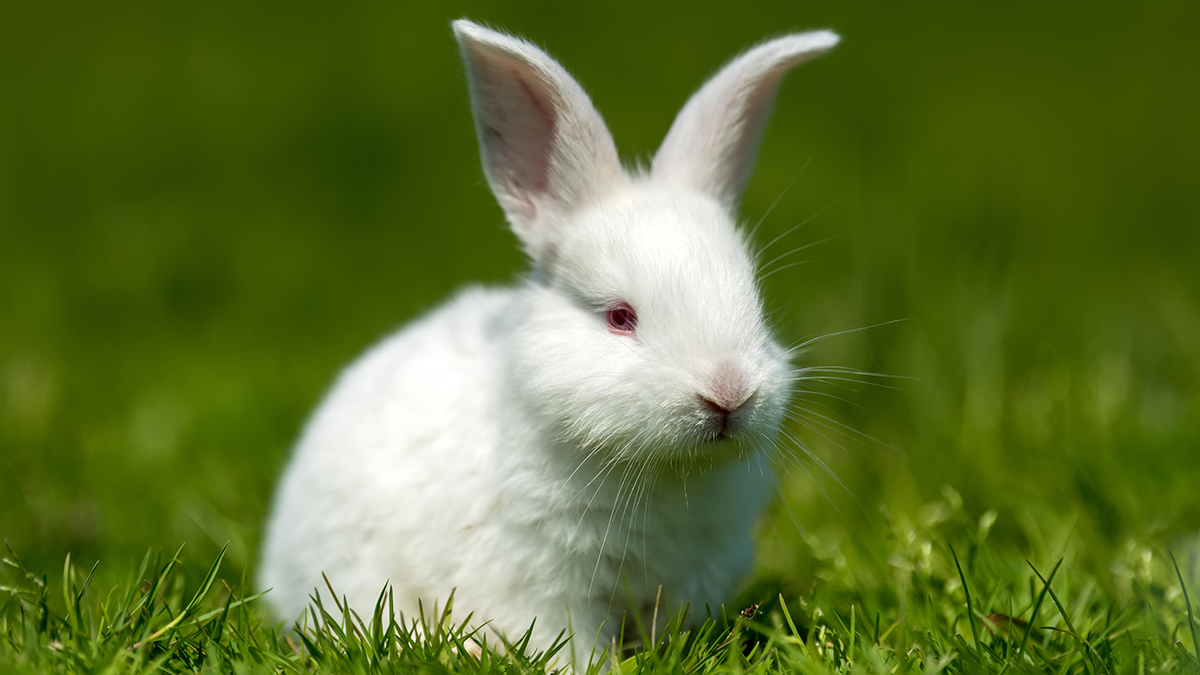
Species Overview
- Common Names: Rabbit
- Scientific Name: Oryctolagus cuniculus
- Adult Size: 2 to 20 pounds, depending on the breed
- Life Expectancy: 5 to 15 years
For the right individual or family, rabbits can be excellent pets. It’s important to note that rabbits require a lot of interaction with their owners (or other rabbits). They are active, very social, and playful, and they enjoy cuddling and playing. They usually form close bonds with their owners.
About the Rabbit
Rabbit Pet Care: Habitat Set-Up
- Your rabbit should be kept in a crate or pen 3 to 4 feet long. Rabbits have tender feet, so be sure to use a container with a solid bottom. One of the best options is a cage with a plastic base and a wire top.
- Provide your rabbit with a litter box. Line the box with newspaper and fill it with either pelleted sawdust litter or grass hay such as Timothy or orchard grass.
- Rabbit urine can have a strong odor, so expect to change the litter box frequently. When cleaning your rabbit’s litter box and cage, vinegar is usually useful for removing odors.
- Rabbits need to chew to keep their fast-growing teeth from growing too long. Provide plenty of toys, such as thick cardboard boxes and chewy plastic toys. To keep your rabbit’s legs healthy and strong, add a shelf so your rabbit can hop.
- If you let your rabbit roam around the house, be careful to rabbit-proof your home. Rabbits love to chew, and dangerous electrical wires and extension cords are just at the right height for rabbits to find. A good solution is to use a pen designed for puppies. A pen enclosure provides plenty of exercise space without giving your bunny the option of roaming around the house and chewing dangerous wires.
Rabbit Pet Care: Temperament
Rabbits are social and gentle creatures that form close bonds with their owners. They like petting and enjoy people, but it’s also important to know that they don’t usually like being picked up and held.
Daily playtime and exercise outside of their cage are a necessity. And, rabbits need to chew, so provide a lot of safe chew toys. If a rabbit is not entertained (by toys or interaction), it can be destructive.
Rabbits need to be spayed or neutered to reduce behavioral problems and health risks. Finally, rabbits have the great advantage of responding well to litter training.
Diet and Nutrition
- Rabbits do best on a diet of grass hay such as timothy, oat hay, orchard grass; avoid alfalfa hay. Also, rabbits need green leafy vegetables; good choices include lettuces, herbs, carrot tops, cucumbers, and sprouts. Provide other vegetables and fruits, but ensure all items you offer are rabbit-safe.
- Rabbit pellets are okay in moderation. Make sure your rabbit has plenty of fresh, clean water at all times, and refresh the food and water daily.
Pet Safety
- Use caution when handling pets, and remember they may bite or scratch (especially when stressed).
- Supervise children around pets.
- ALL ANIMALS can potentially carry viral, bacterial, fungal, and parasitic diseases contagious to humans.
- Thoroughly wash your hands with warm, soapy water before and after contact with any pet or its habitat.
- Adults should assist children with handwashing after contact with a pet, its habitat, or aquarium water.
Related Searches
Small Animal Care